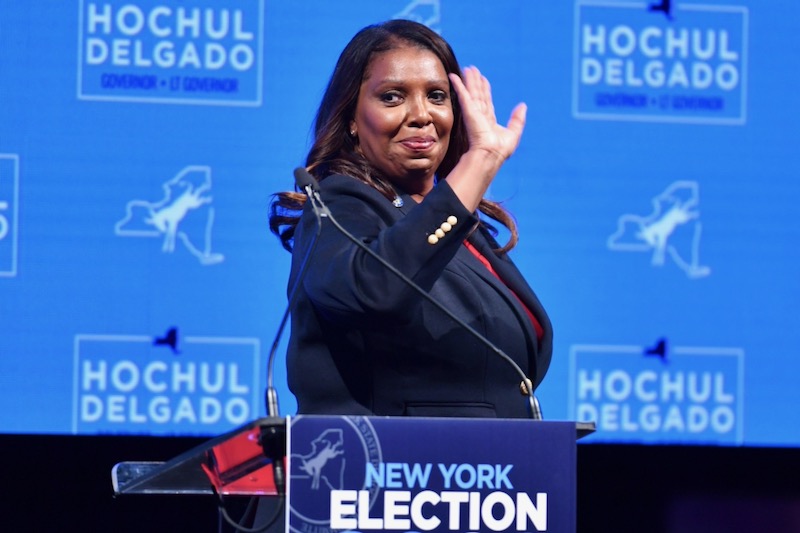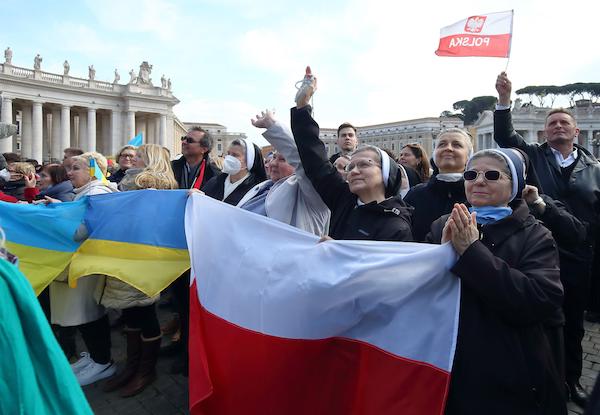Pope Francis condemned the “childish logic of war” at his Wednesday general audience, renewing his appeal to pray for “the tormented Ukraine” and other regions afflicted by war.
His latest call for dialogue and peace follows a meeting on Monday with the head of the Ukrainian Greek Catholic Church, Major Archbishop Sviatoslav Shevchuk, their first since Russia’s invasion of Ukraine in February.
The archbishop presented Pope Francis with a fragment of a Russian mine which damaged a Greek Catholic church in Irpin in northern Ukraine. He is in the Vatican for a week of meetings with curial officials, to report on conditions in his country and to present a pastoral plan for 2023 to address the effects of the war.
In comments after the meeting, Major Archbishop Shevchuk described the conflict as “a colonial war and peace proposals by Russia are proposals of colonial pacification”.
Reuters reported that he dismissed the Russian terms for negotiations.
“These proposals imply the negation of the existence of the Ukrainian people, their history, culture and even their Church. It is the negation of the very right of the Ukrainian state to exist with the sovereignty and territorial integrity that is recognised by the international community,” he said.
“With these premises, Russia's proposals lack a basis for dialogue.”
On the same day that Francis met Major Archbishop Shevchuk, the apostolic nuncio to Ukraine responded to criticism of the Pope’s remarks on Sunday in which he praised Dostoevsky and “Russian humanism”.
Archbishop Visvaldas Kulbokas told Vatican News that Francis “tried to speak to the Russian listener from his heart”. The Pope was striving, he said, to speak “from the very profoundness of his human heart, to other human hearts”.
The nuncio continued: “Then it will depend on the listener if his message will also be paid attention to. And here I would say that our mission, the mission of all the Church, is to pray in order that these words of Pope Francis reach the addressees.”
The Pope’s praise for Dostoevsky was intended, said Archbishop Kulbokas, “to underscore that he is not aligned either politically or ideologically to anybody, to any system, neither to the West nor to the East”.
At his Wednesday audience, the Pope said that the “insane war” would only end “through the mild force of dialogue”. He spoke of other wars, in Syria, Yemen and Myanmar.
“What do wars do? They destroy, they destroy humanity, they destroy everything. Conflicts should not be resolved through war.”
He continued: “Let us ask the Lord for peace for the people who are so afflicted and who suffer so much cruelty, so much cruelty on the part of mercenaries who wage war.”
Addressing Polish pilgrims in St Peter’s Square, Francis asked that Poland’s anniversary of its independence on Thursday “inspire in everyone gratitude to God and a renewed commitment to fraternity, the protection of life and the dignity of the human person in your country and in the international arena, especially in neighbouring Ukraine.”
The Russian army on Wednesday ordered the withdrawal of its troops from Kherson, after deciding that it could no longer supply the city. This will mean that Russian forces will have abandoned the western bank of the Dnipro.
Kherson was the only regional capital captured by Russian forces since the invasion began. Thousands of its residents were evacuated last month, in what Ukraine said was a mass forced deportation. Ukraine has also accused Russian troops of looting the city in anticipation of a Ukrainian offensive in the coming weeks.



 Loading ...
Loading ...